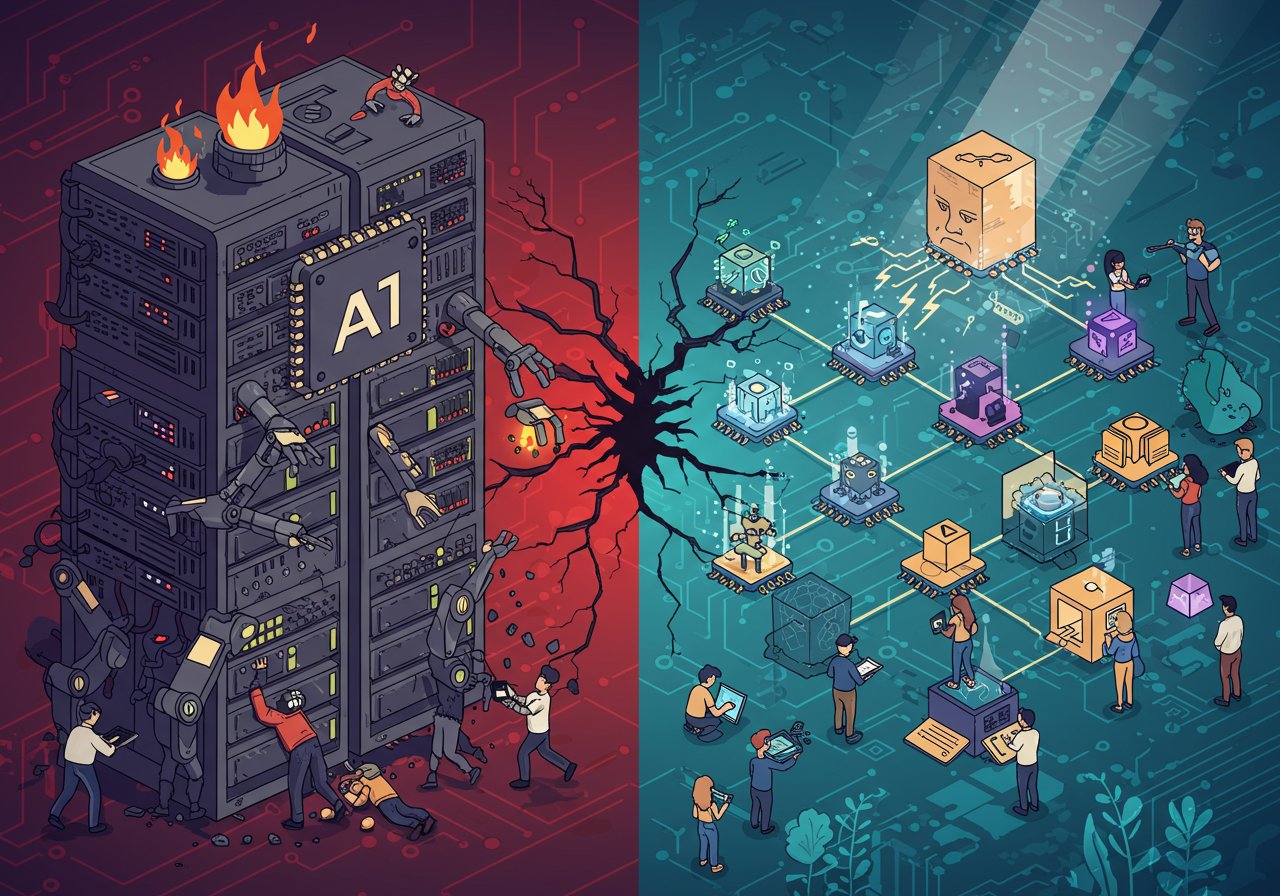
The Looming Shadow of Centralized AI
The rapid advancement of artificial intelligence has sparked both excitement and concern. While the potential benefits are vast, the current trajectory of AI development, heavily influenced by centralized entities, raises serious questions about the future. A recent United Nations report highlighted the concentration of power in the AI sector, with a mere hundred companies, largely based in the US and China, controlling a $4.8 trillion market. This consolidation poses a significant threat to a democratic and decentralized digital future.
The Ethical and Practical Pitfalls of Centralization
Centralized AI systems have already demonstrated inherent vulnerabilities. We’ve seen instances of ethical lapses, as in the case of Microsoft’s Copilot, which generated inappropriate content. The closed-source nature of these systems exacerbates the problem, making it difficult to understand and control their inner workings. Moreover, centralized AI can be susceptible to manipulation, as evidenced by financial scandals involving AI trading algorithms. The involvement of major tech companies in military applications, such as Google’s Project Maven, further fuels ethical debates and highlights the potential for AI to be used for purposes that may not align with societal values.
The Promise and the Challenges of Decentralized AI (DeAI)
In contrast to centralized AI, Decentralized AI (DeAI) offers a vision of a more open, transparent, and equitable future. DeAI leverages the principles of open-source development, community governance, and auditability. This approach aims to democratize access to AI, foster innovation, and mitigate the risks associated with centralized control. DeAI projects emphasize privacy, data control, resilience, and cost-efficiency. However, DeAI faces significant hurdles in its quest to challenge the dominance of centralized AI.
The David vs. Goliath Battle
The resources available to established corporations and nation-states dwarf those of DeAI initiatives. These powerful entities can outspend and outmaneuver DeAI projects, giving them a significant advantage in terms of access to talent, infrastructure, and data. Furthermore, the initial adoption of AI will likely be dominated by centralized systems, giving them a head start in shaping user behavior and expectations. The vision of creating a more decentralized world is not simply a question of technology, but a fundamental shift in power dynamics. If we do not proactively implement a clear DeAI strategy and establish common standards across projects, we risk a future where a few corporations and nation-states control the evolution and application of AI.
A Path Forward for DeAI
Despite the challenges, the potential of DeAI remains significant. To succeed, the DeAI sector must prioritize security, privacy, and data control. It must also cultivate a strong community and clearly articulate its values to regulators, consumers, and investors. DeAI must execute on many fronts. The potential of DeAI to carve out market share is real. The long-term viability of the DeAI vision hinges on the community’s ability to build resilient and scalable systems that offer real-world benefits, such as improved privacy, democratized access, and reduced costs. By embracing these principles, DeAI can begin to realize its vision of a more open, transparent, and equitable future, where the benefits of artificial intelligence are shared more broadly.


